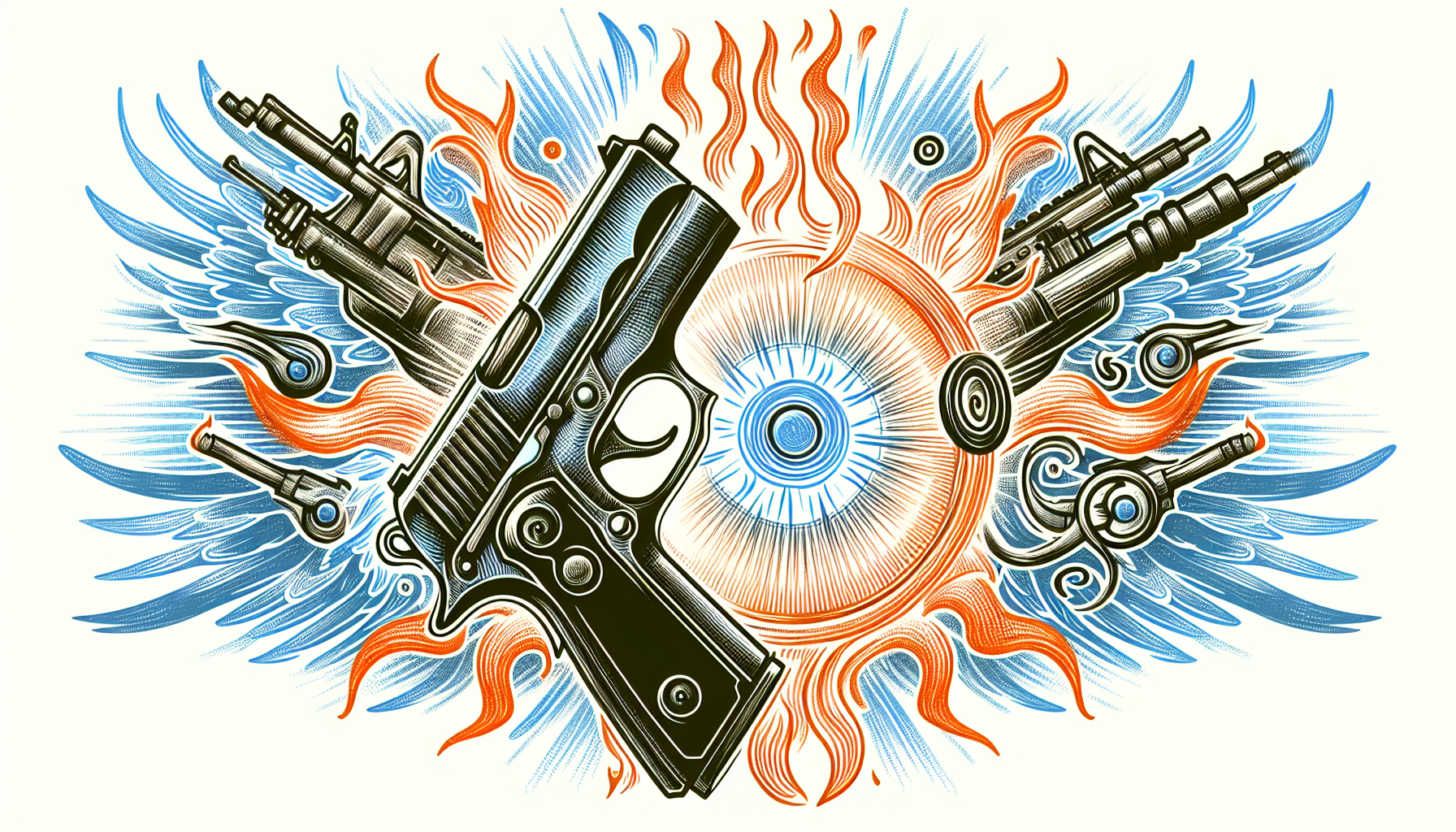In examining the Bahá’í Faith, the position on arms and specifically firearms can be illuminated through its teachings on love, peace, and the intrinsic worth of all human beings. The Bahá’í teachings offer profound insights regarding the use of guns, reflecting a deeply rooted spiritual and ethical framework.
To fully understand the Bahá’í perspective on guns, it is essential to explore their doctrinal underpinnings, historical context, and the implications of their teachings in contemporary society. This discourse will unfold in several sections, elucidating the multifaceted Bahá’í viewpoint on guns, with respect to both personal conduct and societal norms.
1. The Centrality of Peace in Bahá’í Teachings
At the heart of Bahá’í teachings lies an unequivocal commitment to the promotion of peace. The Bahá’í Faith posits that the establishment of global harmony is a primary objective. In this context, the use of guns, often seen as instruments of violence and conflict, stands in stark contradiction to the principles of love, unity, and reconciliation that Bahá’ís uphold. The Bahá’í writings emphasize that all human beings are created equal and should be treated with respect and dignity. These tenets inherently challenge the justification of violence in any form, including the use of firearms.
The peace-oriented teachings of Bahá’u’lláh, the founder of the Bahá’í Faith, advocate for the resolution of conflicts through dialogue rather than coercion. This philosophy implies that promoting understanding and empathy supersedes the need for armed conflict, thereby framing firearms as tools that undermine the foundational principles of the Faith.
2. Historical Context of Arms in Bahá’í History
The historical backdrop of the Bahá’í Faith reveals a period marked by persecution and strife. Early Bahá’ís often faced hostility for their beliefs, and many were subjected to violence. This context can provide insight into the Faith’s teachings on arms. Bahá’í leaders have historically disavowed aggression. They have sought to substitute enmity with goodwill, reinforcing the belief that reliance on guns perpetuates division and strife.
The emergence of the Bahá’í Faith during periods of social upheaval has shaped its teachings to emphasize non-violence. The Faith calls for a collective response to injustice that avoids violent confrontation, instead advocating for peaceful persuasion and moral fortitude. This historical narrative thus informs the contemporary Bahá’í stance against the proliferation of guns.
3. Ethical Reflections on the Use of Guns
Bahá’í ethics urge followers to consider the implications of their actions within the broader context of society. The ethical dimension of the use of guns raises pertinent questions: Does possessing a firearm align with the teachings of kindness and compassion? Can one maintain a spirit of service and love while engaging with tools designed for destruction?
Within this framework, Bahá’ís are encouraged to engage in self-reflection regarding their relationships with firearms. The teachings posit that true strength lies in spiritual fortitude rather than physical weaponry. The acquisition of power through violence is seen as antithetical to the very essence of one’s spiritual journey, which seeks to embody virtues such as patience, humility, and benevolence.
4. Societal Implications and Responsibility
From a societal vantage point, the Bahá’í teachings advocate for the establishment of a just and peaceful world order. This vision necessitates collective action to address the root causes of violence and conflict. As society grapples with issues related to gun violence, Bahá’ís are called to contribute to the dialogue on firearm regulation, emphasizing the need for policies that prioritize human life over material interests.
Moreover, Bahá’í teachings encourage active engagement in community-building activities that foster understanding and cooperation among diverse populations. By promoting an ethos of respect and dialogue, Bahá’ís can help mitigate the societal divisions that often lead to violence. The proactive development of community values serves as an antidote to the proliferation of arms and the resultant societal fears.
5. Alternatives to Firearms in Conflict Resolution
The Bahá’í Faith recognizes the inherent challenges that conflicts present. However, it underscores the importance of exploring nonviolent means of conflict resolution. This perspective insists that dialogue, negotiation, and collaboration can render firearms obsolete in resolving disputes. Various approaches, such as education, restorative justice, and community mediation, are not only advocated but are also seen as markers of maturity in civil society.
The teachings further suggest that nurturing a culture of peace is an ongoing process that requires dedication and collective effort. It compels individuals to engage in transformative practices that foster interpersonal understanding and respect. The path toward universal peace, as outlined by Bahá’í principles, invites creativity and innovation in dealing with societal challenges without resorting to violence or the use of guns.
6. Conclusion: A Call for Spiritual Awakening
In conclusion, the Bahá’í perspective on guns serves as a reflective lens through which to examine the broader implications of violence, conflict, and peace in the modern world. The Faith’s teachings invite individuals to transcend societal divisions and pursue a path characterized by love, unity, and understanding. The potential for spiritual awakening lies within the choice to embrace non-violence and seek harmonious solutions to conflicts.
Ultimately, Bahá’í teachings highlight the necessity of individual and collective responsibility in fostering a culture that prioritizes compassion over weapons. This spiritual approach not only seeks to illuminate the path toward a peaceful coexistence but also serves as a clarion call for transformative action in the face of a world often overshadowed by the specter of violence.
